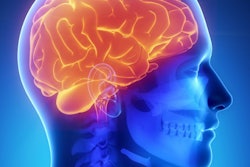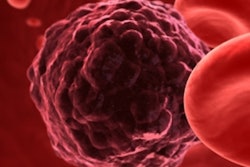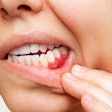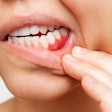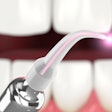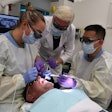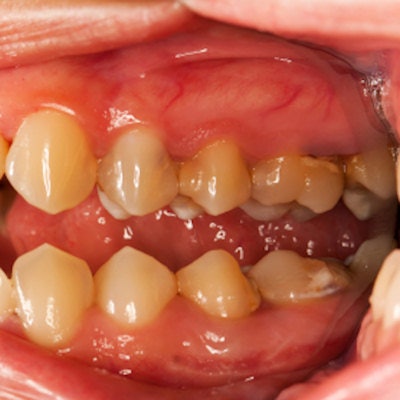
Can failing to floss regularly increase your patients' risk of gastric cancer? A new study investigated the relationship between the presence of precancerous gastric lesions and factors such as oral hygiene habits and periodontal pathogen colonization.
Previous research has suggested a link between periodontal disease and increased gastric cancer risk but not a mechanism. To learn more, researchers examined the oral health, hygiene habits, and presence of various pathogens in patients with and without precancerous lesions of gastric cancer.
They found that periodontal pathogen levels, oral bacterial diversity, and oral hygiene habits were related to risk of precancerous gastric lesions. The team published its findings in the Journal of Periodontology (November 2017, Vol. 88:11, pp. 1124-1134).
"Based on our findings, treatment for chronic periodontal disease and control of periodontal pathogen infections should be included in future strategies for primary prevention of gastric cancer," said study co-author Yihong Li, DDS, MPH, DrPH, a professor of basic science and craniofacial biology at New York University College of Dentistry, in a news release.
Increased cancer-related risk
While some of the approximately 22,000 cases of gastric cancer diagnosed annually in the U.S. are attributable to known factors, such as Helicobacter pylori colonization, cigarette smoking, and dietary intake of salt and preserved foods, many cases are not associated with any of these explanations.
Researchers of previous studies have hypothesized that the presence of certain periodontal pathogens or bacteria cause periodontal infections that lead to chronic systemic inflammation, contributing to gastric cancer development.
Past research has also shown an association between the development of precancerous lesions of gastric cancer and risk factors such as smoking, not flossing, and having a higher percentage of sites with gingival bleeding. Additionally, cumulative bacterial burden in saliva and the presence of precancerous gastric lesions have been linked in individuals with periodontal disease.
The researchers of the current study hypothesized that individuals with poor periodontal health have an increased periodontal pathogen burden, and these patients experience changes in oral microbial diversity that lead to an increased risk of developing precancerous gastric lesions.
To test their theory, they recruited study participants from among patients scheduled for an upper endoscopy at a New York City hospital. Their study included 35 patients who had undergone a standardized endoscopic exam and histopathologic evaluation and were diagnosed with precancerous gastric lesions, which included chronic atrophic gastritis, intestinal metaplasia, or dysplasia. The researchers matched them by age with 70 individuals without any precancerous lesions as confirmed by biopsy.
All study participants underwent a full-mouth intraoral exam performed by a registered dental hygienist to assess periodontal health. They also provided samples of stimulated whole saliva and dental plaque for evaluation for periodontal pathogen colonization.
The researchers found that the group with precancerous gastric lesions experienced significantly more bleeding on probing compared with the control group (31.5% versus 22.4%; p < 0.05), had higher levels of Treponema denticola (p < 0.01) and Aggregatibacter actinomycetemcomitans (p < 0.01), and less bacterial diversity in their saliva (p < 0.01).
Elevated colonization with the periodontal pathogens Tannerella forsythia, T. denticola, and A. actinomycetemcomitans; decreased bacterial diversity in dental plaque; and not flossing teeth regularly were significant predictors of increased risk of precancerous gastric lesions in the final multivariate model. Periodontal findings and bacterial assessments corresponded so that the same groups of individuals were more likely to have significantly high levels of P. gingivalis, T. denticola, and T. forsythia in their saliva or dental plaque.
"Findings of the present study provide new evidence suggesting that periodontal pathogen burdens and bacterial diversity in the oral cavity are important factors contributing to a potentially increased risk of developing precancerous gastric lesions," the authors wrote.
More research needed
The study's small sample size was its main limitation, according to the authors. Other limitations included that the collection of bacterial samples from four molars and two teeth with the deepest probing depth could have influenced bacterial measurements, and periodontal disease is site-specific and not evenly distributed throughout the mouth. Also, gastric samples were not available for direct microbial analysis.
Further studies are needed to address these issues and confirm the study findings, they noted.
"Our study reinforces earlier findings that poor oral health is associated with an increased risk of precancerous lesions of stomach cancer," Dr. Li concluded.




